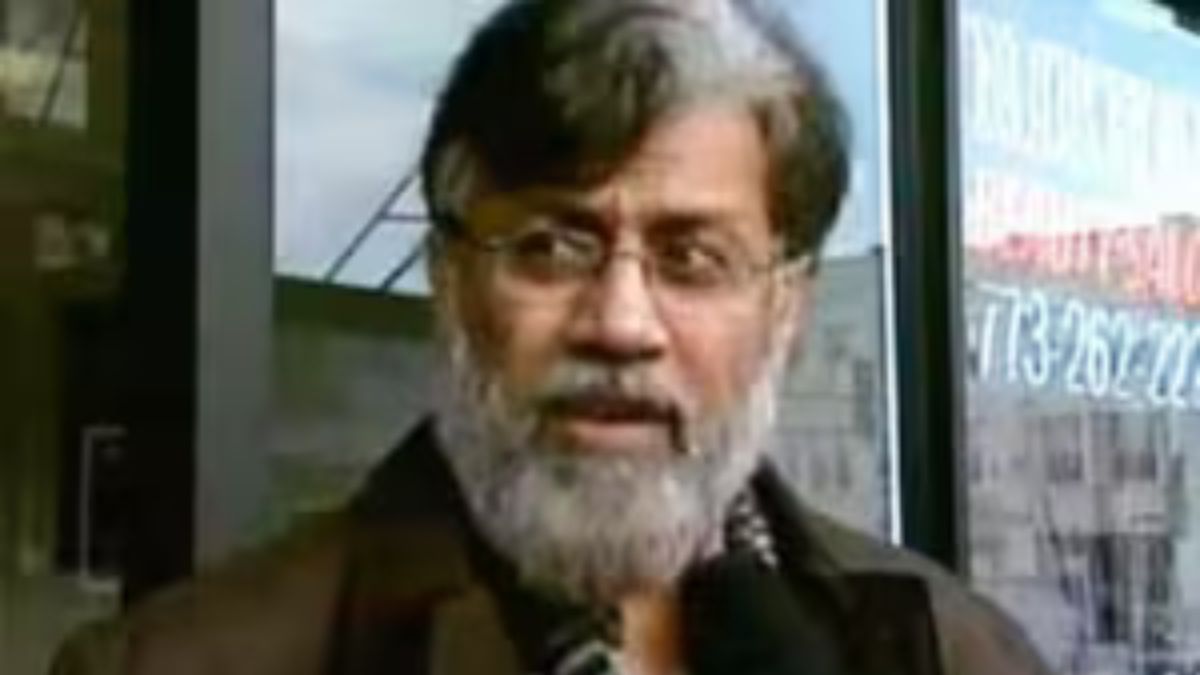The US Supreme Court has approved the extradition of Tahawwur Hussain Rana, a Pakistani-origin Canadian national, to India.
This decision concludes a prolonged legal battle as the apex court dismissed Rana’s petition to avoid extradition.
Rana is accused of significant involvement in the 2008 Mumbai terror attacks that killed 166 people, including six Americans.
Who Tahawwur Rana is and what he is accused of
Tahawwur Hussain Rana, born in Chichawatni, Pakistan, is a former doctor who served as a captain in the Pakistan Army Medical Corps.
After immigrating to Canada in 1997, Rana gained citizenship in 2001 and eventually moved to the United States, where he established First World Immigration Services, a consultancy firm with offices in Chicago, New York, and Toronto. His business became central to the allegations against him.
Rana is accused of aiding his longtime friend, David Coleman Headley (formerly Daood Gilani), a Pakistani-American operative of Lashkar-e-Taiba (LeT). According to investigators, Rana allowed Headley to use his immigration consultancy as a cover to conduct surveillance and reconnaissance missions in India.
These operations were critical in planning the 26/11 Mumbai terror attacks, which targeted iconic locations such as the Taj Mahal Palace Hotel, Chhatrapati Shivaji Terminus, and Nariman House. The attacks, carried out by 10 heavily armed terrorists over a 60-hour siege, claimed the lives of 166 people, including six Americans.
In addition to the 26/11 attacks, Rana is also implicated in other terror plots, including plans to attack the National Defence College in Delhi and the Chabad House in Mumbai.
He has also been accused of facilitating a plot to target the Danish newspaper Jyllands-Posten, which had published controversial cartoons of Prophet Muhammad. His connection with Headley, established during their time at Cadet College Hasan Abdal in Pakistan, became the cornerstone of the prosecution’s case.
Timeline of Rana’s legal battle
Rana’s legal troubles began in October 2009, when he was arrested in the United States alongside Headley. While Headley cooperated with investigators and testified against Rana, the latter maintained his innocence, claiming he had been manipulated.
In 2011, Rana was convicted of providing material support to LeT and conspiring to attack the Danish newspaper but was acquitted of charges directly related to the 26/11 attacks. He was sentenced to 14 years in prison in January 2013.
India’s pursuit of Rana’s extradition formally began in December 2019, when it submitted a diplomatic note to the US government. A year later, a complaint seeking his provisional arrest was filed. The Biden Administration backed India’s request, asserting that Rana’s crimes warranted extradition under the India-US Extradition Treaty.
Despite losing appeals in lower courts and the US Court of Appeals for the Ninth Circuit, Rana filed a last-ditch petition with the US Supreme Court in November 2024. This was denied in January, effectively ending his legal avenues to avoid extradition. The decision is widely seen as a significant victory for India in its fight against terrorism.
Pending cases against Rana in India
Once extradited, Rana will face trial under several provisions of the Indian Penal Code, including charges of criminal conspiracy, waging war against the Government of India, forgery, and murder.
The National Investigation Agency (NIA) has built a robust case against him, alleging his direct involvement in facilitating the 26/11 attacks and other terror plots.
Rana’s extradition is expected to yield critical information about the operational links between LeT and elements within Pakistan’s security establishment. Advocate Ujjwal Nikam, the public prosecutor in the 26/11 case, welcomed the development, telling ANI that his extradition could reveal more about the involvement of Pakistani people from its security apparatus.
The prosecution in India is likely to rely on testimonies from Headley and other witnesses, as well as evidence gathered from Rana’s communications and transactions. The NIA plans to charge Rana in a Delhi court, with hearings expected to shed light on the broader network of terror operatives involved in the attacks.
What next?
Rana is currently held at the Metropolitan Detention Center in Los Angeles. Following the Supreme Court’s decision, his extradition to India is imminent. Upon his arrival, Indian authorities will formally arrest him and present him before a court for remand and trial.
The trial process may be lengthy, given the complexity of the charges and the international dimensions of the case.
The extradition marks a pivotal moment in India’s efforts to seek justice for the victims of the 26/11 attacks. Experts believe that Rana’s trial could set a precedent for future extraditions and strengthen global counter-terrorism initiatives.
Rana’s brother, Abbas Rana, a journalist based in Canada, has consistently maintained his brother’s innocence. In a statement at the time of the arrest, Abbas had said, “To the best of my knowledge, these charges are false. I know my brother. He’s a man of integrity, he’s honest, and he’s a hard-working person.”
However, the evidence against Rana, including Headley’s testimony, paints a different picture. Prosecutors allege that Rana knowingly facilitated Headley’s activities, providing him with the cover and resources needed to carry out reconnaissance missions for LeT.
The US Supreme Court’s decision to approve Rana’s extradition is a significant step forward in ensuring accountability for the 26/11 Mumbai attacks.
With inputs from agencies


)

)
)
)
)
)
)
)
)



